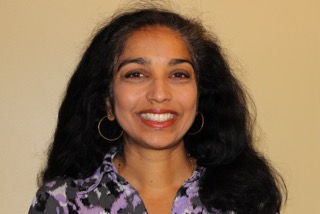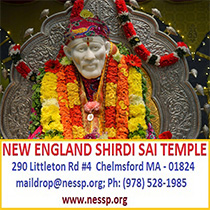Dr. Anita Shankar is a medical anthropologist and public health researcher with Johns Hopkins University, Bloomberg School of Public Health in the Department of Environmental Health Sciences and the Center for Global Clean Air. She has over 20 years experience in research and programs focused on women’s empowerment, maternal and child health, HIV/AIDS, nutrition, community mobilization and human resource capacity building. Her research spans several countries where she has lived or worked including Nepal, India, Indonesia, Papua New Guinea, Zimbabwe, Kenya and Bolivia. Dr. Shankar has served as a consultant to NGOs, governments and international organizations to improve health programming and monitor impacts. She leads numerous studies on women’s health and well-being as well as serves as the director of field programs for a global initiative on women’s empowerment. Her current research focuses on understanding the significance of engaging women along the clean cook stove value chain and documents the impacts of an agency-based empowerment training on entrepreneurial capacity and cook stove adoption.
What does a medical anthropologist do?
The field of medical anthropology is rather vast and can include the examination of illness and disease in different cultural contexts or could be the review of medical systems across the world. Medical anthropology is a specialization within the social sciences and many of the experimental methods and research designs are qualitative in nature. Therefore, much the research includes in-depth interviews with participants, observations and examination of social patterns. Medical anthropologists can work in many different settings, doing research, developing culturally appropriate programs, public health activities and policy research.
Why did you choose a career in this field?
I started my undergraduate career in microbiology and completed a masters in biology, however, I felt that the problems that I was investigating were very far removed from challenges that poor people faced in the world. I was fascinated by the complexity of real world situations and felt that those individuals living under those conditions had a unique knowledge on how to address these challenges. It appeared to me that there was a gap between medicine/public health and the communities they were serving. I felt that a greater understanding of the cultural contexts in these countries would help address this gap and lead to more effective public health programs.
Could you describe agency based training for empowering women?
As a medical anthropologist, I have had the chance to do hundreds of interviews with individuals, mostly women. What I realized is that while they may intellectually understand their situation and potential solutions, they didn’t have the inner capacity (such as self-efficacy or intrinsic motivation) to act on those solutions. I realized later that this capacity to act is an actual psychological construct called agency. The agency based empowerment training works with groups of women to help them understand what is important for them, helps them understand how they think about their lives and how to shift their thinking to move themselves toward their own life goals. Women review their core beliefs, various areas of their lives (including emotions, relationships, work, money, etc.) and come up with actionable goals as well as a process to move towards their goals.
Could you describe a piece of work that you feel has been most exciting?
The most recent work with male and female energy entrepreneurs that we just completed in Kenya has been very exciting. It was a randomized trial that showed that the agency-based training led to significantly better entrepreneurs – for both men and women, but most markedly for women.
How challenging is it to have a career in academics at a top university like JHU?
It has been a wonderful experience to work at Johns Hopkins University, mainly because of the types of collaborations that are developed. There is also flexibility in my line of work that allows me to live and work anywhere in the world. The main reason why I enjoy this work is that I am able to do something that I am very passionate about. My international collaborators in Kenya, India, Indonesia and elsewhere are brilliant professionals who are dedicated to change the world for the better.
You and your husband have traveled a lot in your work. What opportunities and challenges did it present for your family life ?
There is no real distinction between work and family life for us. There is a larger mission in our lives that drives what we do and how we do it. Our children are part of that larger vision and we engage them as much as possible to learn about the world and peoples of different cultures. They are incredibly adaptable and have a strong understanding of differences in life experiences in the world. They are also a lot of fun.
You and your husband are very successful researchers and you are parents to four children. How do you maintain a work life balance?
We do the best we can and of course there are challenges. We communicate a lot with each other to make sure everyone is managing okay and try to keep life as simple as possible. We try to instill a sense of independence in them and want them to follow their passions. We also want them to understand things that are important in one’s life, our relationships, our willingness to grow ourselves and learn, our contribution to our world. I don’t know if there is every really a balance, but more importantly there should be an excitement to one’s life, which can lead to some extreme ups and downs.
What advice would you give to people wanting to follow in your footsteps?
I would say learn from different fields of study as you move into your career. Integrative approach and thinking will help solve some of the really intractable problems. Find strong partners to work with that are interested in creating a change in the world and who are compassionate.
What opportunities for research are open in your field?
Academic universities, NGOs, governmental organizations and global organization, aid agencies, philanthropic organizations are all good places to find research opportunities.



